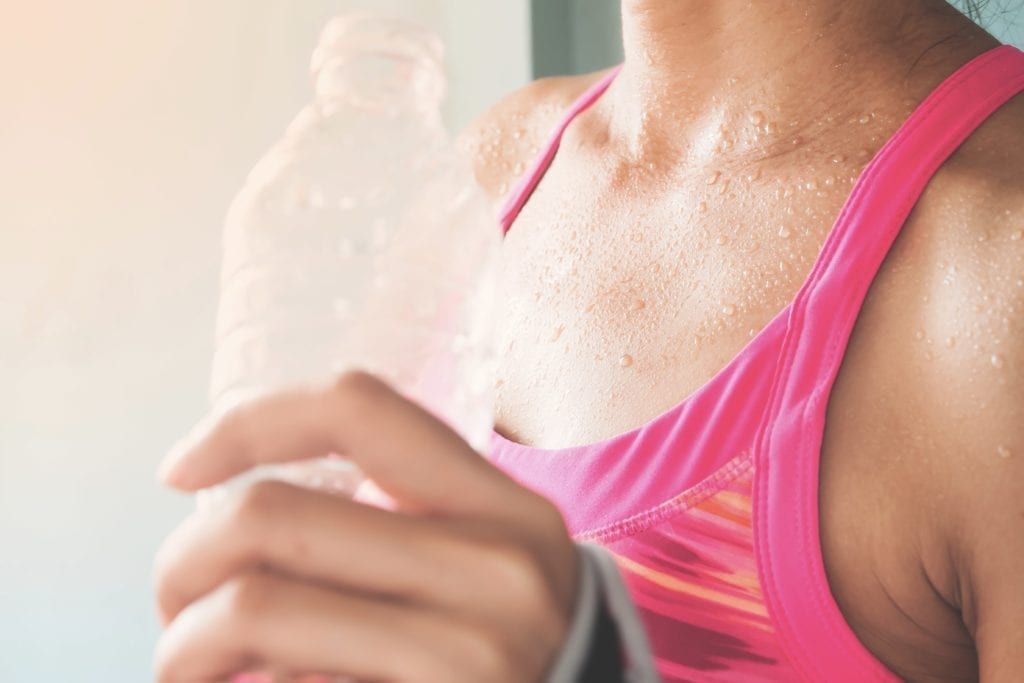During the summertime, a common mantra we all hear is “make sure you stay hydrated and drink enough water”. While most of us will naturally drink when we get thirsty, health professionals often recommend drinking water even when we are not thirsty in order to stay hydrated. This may make you wonder why it is so important to stay hydrated.
For starters, the human body is composed of about 60% water and it is recommended to drink around 64 oz or (8) 8 oz glasses of water a day. This amount of water, known as the 8×8 rule is believed to be sufficient for preventing dehydration, or the state of losing more water than you are taking it. Dehydration is especially prevalent in the summertime since water is lost when we sweat. In addition to preventing dehydration, staying hydrated is important for the following reasons:
Prevents and Treats Headaches
A common symptom of dehydration is headache, so staying hydrated can prevent headaches from occurring. Not only that, but drinking plenty of water has also been found to relieve headaches in people who frequently experience them. In fact, a randomized study on the effects of water intake on headaches found that 47% of study participants reported headache improvement after drinking an additional 50.7 ounces of water daily.
Affects Brain Function
In addition to literally making your head hurt, dehydration also affects the way your brain functions inside your head. Even losing as little as 1-3% of water weight can cause impairments in mood, concentration, memory, and brain performance. Additionally, it can also cause symptoms of anxiety and fatigue in some cases. Staying properly hydrated helps to reduce these symptoms and maintains normal brain performance.

Makes Exercise Easier
People who exercise can lose about 6-10% of their water weight in sweat and the effects of dehydration can be seen when as little as 2% of water weight is lost. Trying to exercise while dehydrated makes exercise more difficult mentally and physically. Mentally, dehydration can decrease your motivation. Physically, dehydration increases fatigue and alters your body’s ability to control your temperature. Conversely, staying hydrated prevents these symptoms and improves your overall physical performance, which makes exercising easier and more enjoyable.
Helps You Lose Weight
Yes, drinking more water can actually help you lose weight due to water’s ability to boost your metabolic rate. When your metabolism is increased, this increases the number of calories you burn per day, which can help you lose weight. It has been found that drinking water half an hour before a meal also helps you to consume fewer calories in order to lose weight. One study noted that dieters who drank water before meals lost 44% more weight than those who didn’t drink water before meals.
Prevents Hangovers
Alcoholic beverages can cause the body to become dehydrated due to the fact that alcohol is a diuretic which causes the body to lose water. As a result, symptoms such as headache, fatigue, dry mouth, and thirst can occur. When these symptoms are experienced collectively after drinking alcohol, this is known as a hangover. Drinking a glass of water between alcoholic beverages, as well as one glass before bed helps to replenish lost water and prevent hangovers.
Relieves Constipation
People who have lower water consumption levels are more likely to have trouble passing a stool, as well as infrequent bowel movements. Oftentimes, drinking more water is recommended as a non-invasive treatment for constipation. Mineral water can also be beneficial for alleviating constipation symptoms since it contains magnesium and sodium, which improves bowel movement frequency.

Dr Kumar is a highly skilled physician dedicated to providing gentle and effective care to patients of all ages and medical conditions. He achieved his degree in a field that he is passionate about. He believes that excellent health begins with education and has made his mission to enlighten patients to ways they can take greater control over their health. Dr Kumar is committed to continuing education activities and remaining aware of the latest advancements in Medical Science to maintain current high standards of care.



